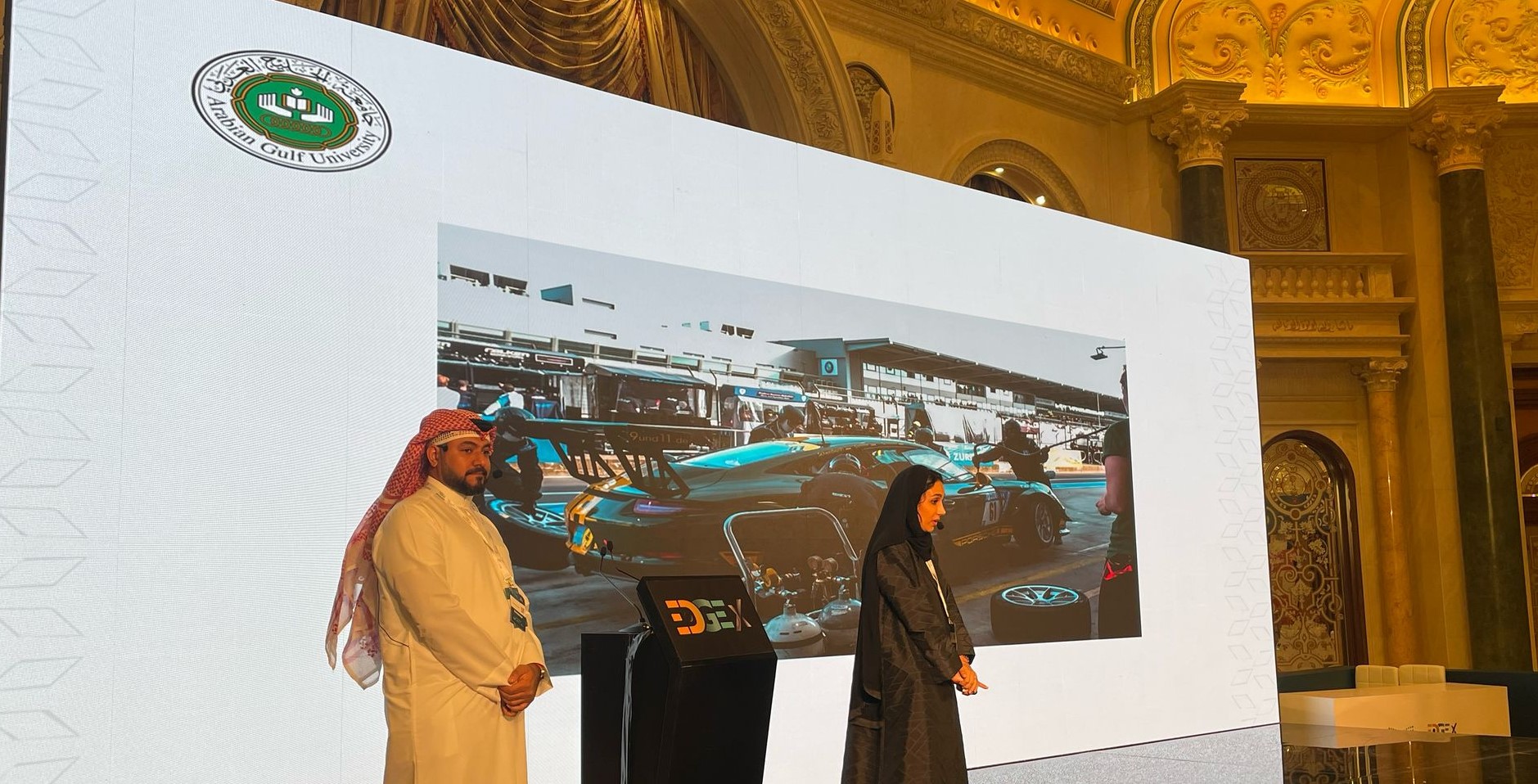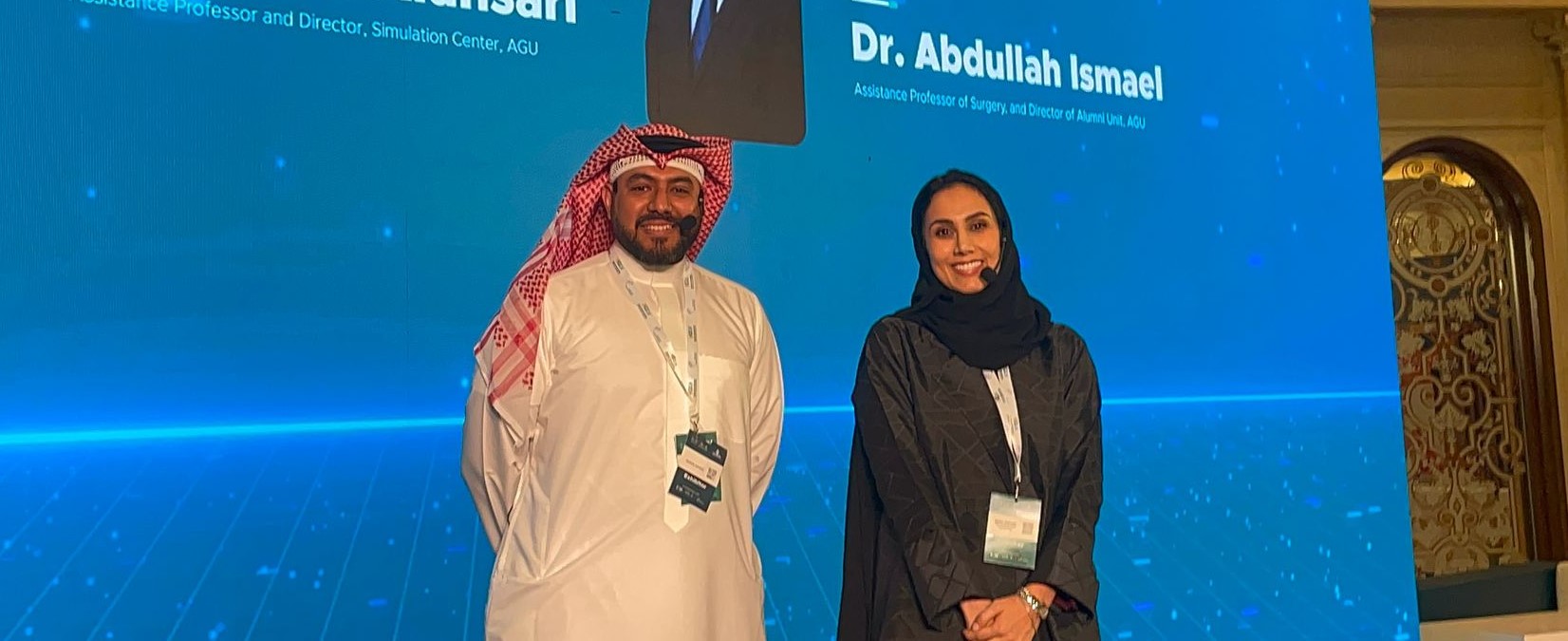
AGU Showcases Leadership in Technology-Driven Medical Education at EDGEx 2025 Riyadh
Arabian Gulf University
16 Apr, 2025
Academics from the Arabian Gulf University (AGU) recently highlighted the initiatives of the College of Medicine and Health Sciences to enhance medical education through technology and advanced clinical simulation at the Education Global Exhibition (EDGEx 2025) in Riyadh. This came during a lecture by Dr Abdullah Ismail Mohammed, Assistant Professor in the Department of Surgery, and Dr Reem Al Ansari, Director of the Medical Skills and Simulation Centre and Assistant Professor in the Department of Medical Education.
The session, titled "From Classroom to Clinic: How Simulation Transforms Medical Education" explored the university's innovative approach to medical education, emphasising the integration of cutting-edge simulation technologies that improve student preparedness and ensure patient safety.
Dr Abdullah Ismail shared his personal journey as an AGU graduate, reflecting on the university’s growth and its embrace of e-learning and technological advancements. He noted that this digital transformation has fostered an educational environment that meets international standards and attracts students from across the Gulf region.
Dr Reem Al Ansari stressed the importance of bridging the gap between theoretical knowledge and practical experience in medical education. She explained that simulation-based training enables students to develop essential life and professional skills in a safe environment before interacting with real patients. She noted that while fields like aviation, the military, and sports heavily utilise simulation for training, medical education remains relatively underdeveloped in this area.

Al Ansari discussed the advanced capabilities offered by the Medical Skills and Simulation Centre at AGU, which is recognised as one of the most sophisticated facilities in the region. The centre features training rooms designed to replicate a hospital environment, outfitted with state-of-the-art equipment, including interactive mannequins, virtual reality technologies, and advanced recording systems for performance monitoring and analysis. She explained the centre’s philosophy of viewing mistakes as learning opportunities, encouraging students to experiment, embrace challenges, think critically, and continuously improve through feedback from experienced trainers.
Al Ansari compared the training experience at the centre to Formula 1 racing teams, where emphasis is placed on both individual skill and cohesive team performance. This collaborative approach is mirrored in the university's training of students to effectively handle emergency medical scenarios, such as code blue situations and shift changes.
She affirmed that simulation is not a side activity but a fundamental component of the university's medical curriculum starting from the first year. Students begin applying their theoretical knowledge in realistic training environments, allowing them to confront and learn from various challenges.
In conclusion, she stated, "Simulation does not replace experience, but at the AGU, we are committed to ensuring that our graduates possess not only academic intelligence but also the readiness, confidence, and compassion necessary for successful medical practice across all specialties."
